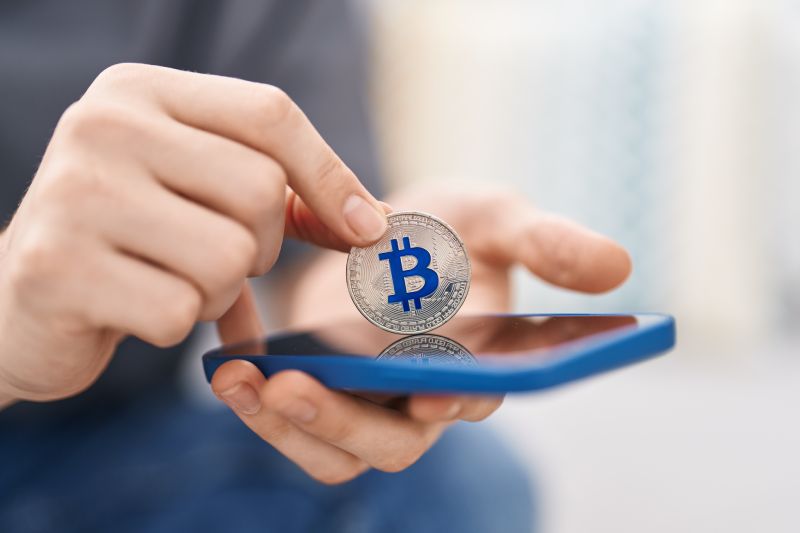In a major announcement, Visa has revealed that it will allow its network of 70 million merchants to accept cryptocurrencies as a form of payment. This is a huge step forward for the adoption of digital assets and a clear sign of the growing demand for crypto payments.
Visa has partnered with several crypto platforms, such as Crypto.com, Coinbase, Bitpanda and FTX, to enable their users to spend their crypto balances using Visa cards. According to Visa, more than $1 billion worth of crypto transactions were processed by its partners in the first half of 2021.
Visa’s move is not only a boost for the crypto industry, but also a strategic decision to stay ahead of the competition. As the world’s largest payment network, Visa has to adapt to the changing preferences of consumers and merchants, who are increasingly looking for faster, cheaper and more inclusive payment options.
Visa is not the only payment giant that is embracing crypto. Mastercard, PayPal, Square and Stripe are also offering or planning to offer crypto-related services to their customers. These companies recognize that crypto is not a threat, but an opportunity to expand their market share and revenue streams.
Visa’s announcement is a bombshell for the crypto space, as it opens the door for millions of people to access and use digital currencies in their everyday lives. It also shows that crypto is becoming more mainstream and accepted by the traditional financial system. This is a positive development for the future of money and innovation.
However, how will this affect the price of cryptocurrencies? Some analysts believe that Visa’s endorsement will increase the demand and value of crypto assets, as more people will see them as a viable and convenient payment option. Others argue that Visa’s integration will have a negative impact on the price of crypto, as it will reduce the scarcity and uniqueness of digital currencies. Ultimately, the market will decide how Visa’s move will influence the price of crypto, based on supply and demand factors.
But what are the risks associated with crypto payments? Despite the benefits of using crypto as a payment method, there are also some challenges and drawbacks that need to be addressed. For example:
- Crypto payments are subject to high volatility and price fluctuations, which can affect the purchasing power and profitability of both consumers and merchants.
- Crypto payments are not regulated or protected by any central authority or intermediary, which means that users are responsible for their own security and privacy. If they lose their private keys or fall victim to hacking or fraud, they may not be able to recover their funds or seek compensation.
- Crypto payments may face legal and regulatory uncertainties in different jurisdictions, which can create confusion and compliance issues for both consumers and merchants. Some countries may ban or restrict the use of crypto as a payment option, while others may impose taxes or fees on crypto transactions.
- Crypto payments may have environmental and social implications, as some cryptocurrencies require a lot of energy and resources to operate and maintain their networks. This can contribute to greenhouse gas emissions and climate change, as well as social inequalities and human rights violations.
So how can you protect your crypto wallet from hacking? Hacking is one of the most common and serious threats to your crypto wallet. Hackers can try to access your private keys, steal your funds, or manipulate your transactions. To prevent hacking, you should follow these best practices :
- Use a cold wallet. A cold wallet is a hardware device that is not connected to the internet, such as Ledger Nano S Plus. This reduces the chances of hacking or theft. A cold wallet is also known as an offline wallet or a hardware wallet. It is a physical device that stores your private keys (the codes that allow you to access your crypto funds) in a secure chip or memory card. Unlike a hot wallet (an online wallet or software wallet), a cold wallet does not need an internet connection to function. This makes it immune to hacking attacks or malware infections that could compromise your online accounts or devices.
- Use a reputable exchange. A reputable exchange is one that has high security standards, complies with regulations, offers customer support and insurance, and has a good reputation among users. A reputable exchange can protect your funds from hacking by using encryption, firewalls, anti-virus software, multi-signature verification, cold storage, and other security measures. A reputable exchange can also compensate you in case of a security breach or loss of funds.
- Use strong passwords and change them regularly. A strong password is one that is long, complex, unique, and hard to guess. You should use different passwords for different accounts and devices, and change them regularly. You should also use a password manager to generate and store your passwords securely.
- Use multi-factor authentication (MFA). MFA is a security feature that requires you to provide more than one piece of information to access your account, such as a code sent to your phone or email. This adds an extra layer of protection against unauthorized access. You should enable MFA for your crypto wallet, exchange, and device accounts.
- Beware of phishing. Phishing is a type of scam where hackers send fake emails or messages that look like they come from legitimate sources, such as your exchange or wallet provider. They try to trick you into clicking on malicious links or attachments, or revealing your personal or financial information. You should never click on suspicious links or open unknown attachments, and always verify the sender’s identity and address before responding.
- Keep your device and software updated. Your device and software are vulnerable to hacking if they are outdated or have security bugs. You should always keep your device and software updated with the latest versions and patches. You should also use antivirus software and firewall to protect your device from malware and intrusions.









